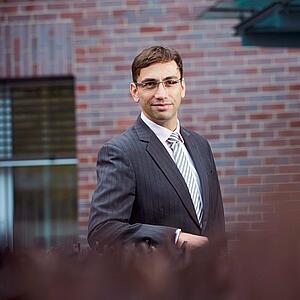Trend researcher Sven Gabor Janszky with new speech “Mobility in 2025”
Even today, intelligent control systems automatically keep a distance to the vehicle ahead or park the car autonomously. And the development of self-driving cars such as the Google self-driving car has already made considerable progress, so that this kind of cars could already dominate the streets by 2020.
Global Topspeaker Sven Gábor Jánszky describes the city of the future where vehicles will no longer have a steering wheel but drive up via app on the push of a button and independently find the way to their destination. Will everybody even own a car if the car pools of our companies become an electronic mobility assistant? How will business models change, if an automobile is self-driving in the truest sense of the word and can thus serve as an office?
How will our city centres change, if new areas are available for parks or housing that used to be parking lots and parking garages? What will be the tasks of the public transportation services and municipalities, if traffic controls itself by means of internal signalling and traffic lights become obsolete? And finally, thanks to the automation, even the annoying search for a place to park may become a thing of the past.
But as human failure - the main cause of most accidents – will be eliminated by the automatic control of the vehicles, considerably higher road safety is already on the horizon. But how will insurance companies determine who is responsible in case of damage, if the machine is steering and humans are no longer in control?
In his trend-setting lecture, trend researcher Sven Gábor Jánszky puts forward the following thesis: Due to autonomous driving, interconnection and digitalisation will have a considerably higher impact on the future of mobility in the coming 10 years than the introduction of electrical drives had in the past.

